MercoPress. South Atlantic News Agency
Tag: argentine farmers
-
Friday, September 16th 2022 - 08:07 UTC
The September “soy dollar” convinces Argentine farmers to sell their crops
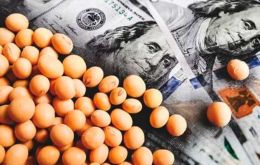
Argentine farmers have sold 15.2% of the country’s 44 million-ton 2021/22 soy crop in seven days since the government implemented a more favorable exchange rate for cash crop exports, Rosario grains exchange reported.
-
Monday, April 25th 2022 - 09:45 UTC
Argentine opposition steals show of rural producers marching onto Plaza de Mayo
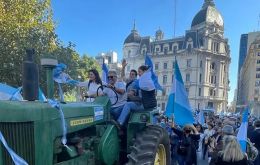
Argentina's opposition leaders of the Juntos por el Cambio (JxC - Together for Change) took center stage during Saturday's tractorazo (tractor caravan) towards Buenos Aires' Plaza de Mayo with which rural producers protested against several measures from the administration of President Alberto Fernàndez which were detrimental to them.
-
Friday, February 5th 2021 - 12:57 UTC
Argentine farmers on alert: government does not rule out more taxes on food exports

Despite a recent accord with the government regarding corn exports, Argentine farmers are again on alert following statements from officials who did not rule out the possibility of increasing taxes on food exports as part of its effort to control high inflation.
-
Sunday, November 8th 2020 - 09:54 UTC
Massive flags protest demonstration across Argentina programmed for Sunday

A massive Argentine flags' protest is scheduled for this Sunday with the support of different sectors of urban communities and farmers throughout the country, similar to the several that have been successfully held so far this year in support of the defense of Liberty, the Republic and Justice. The last one was on 12 October.
-
Friday, October 2nd 2020 - 09:05 UTC
Argentina lowers export taxes on soy for three months, hoping farmers will sell their crops
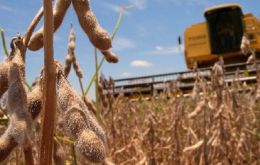
Argentina plans to temporarily cut soybean and soy meal export taxes by 3 percentage points to 30% to help stimulate export revenue as the country struggles with recession and dwindling foreign reserves, it was announced on Thursday.
-
Monday, March 9th 2020 - 08:57 UTC
Argentine farmers begin four day sales strike to protest higher export taxes

Argentina’s main farm groups will hold a four-day sales strike this week, officials with local growers groups said on Thursday, to protest a tax hike that soy crushing companies warn will cripple investment in the key sector.
-
Thursday, February 27th 2020 - 07:50 UTC
Argentine farmers with a “deep sense of deception”, ahead of grains export tariffs
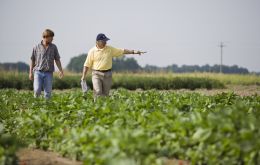
Argentina's Ministry of Agriculture suspended on Wednesday the registration of agricultural exports until further notice, it said in a statement, a move that traders said likely foreshadowed a steep increase in grains export tariffs.
-
Monday, January 13th 2020 - 09:37 UTC
Argentine farmers increased forward selling of soybeans to avoid higher export taxes
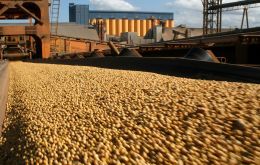
Argentina farmers increased the forward selling of soybeans in the last four months of 2019 in an effort to avoid higher export taxes that are now in effect, according to a Global Agricultural Information Network report from the U.S. Department of Agriculture.
-
Monday, December 30th 2019 - 09:56 UTC
Argentine president manages an all encompassing Social Pact, but farmers did not show up

Argentine president Alberto Fernandez together with business people, union leaders and representatives from social groupings launched the social pact, called “Argentine commitment for development and solidarity”, with the purpose of achieving long term consensus that goes beyond a presidential mandate (four years), and includes “shared goals which can be crystallized in different chapters”
-
Saturday, December 28th 2019 - 09:53 UTC
Argentine farmers back on the roads protesting export duties
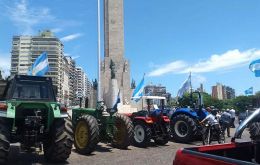
Argentine farmers from the central provinces of Cordoba and Santa Fé are back on the roads to protest the latest raft of export duties on agriculture produce and overall increase in taxes established by the recently sworn in administration of President Alberto Fernandez.
